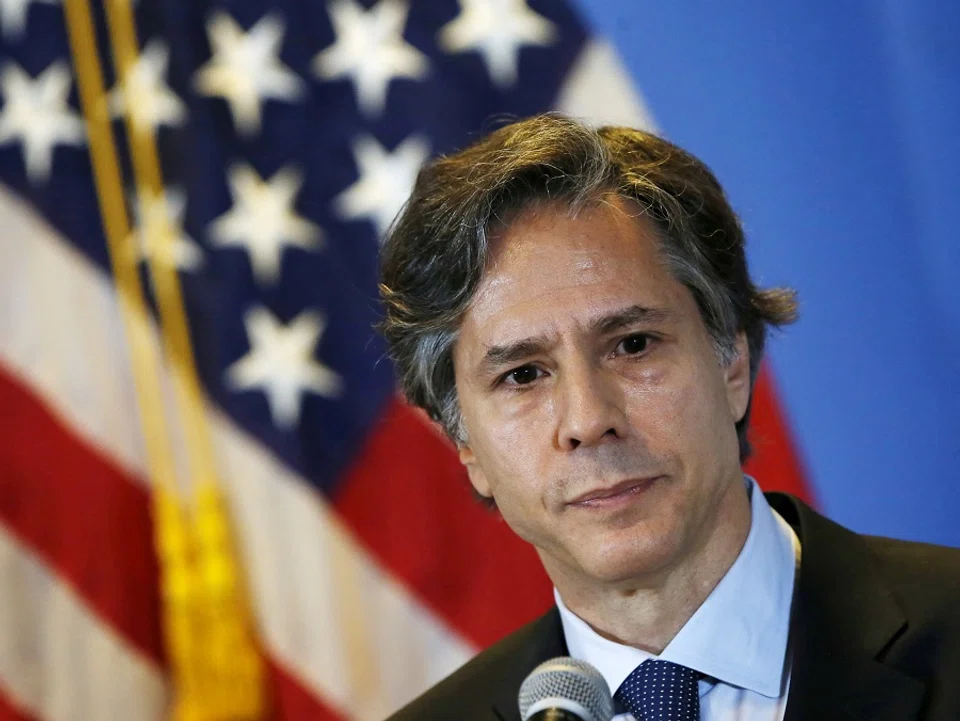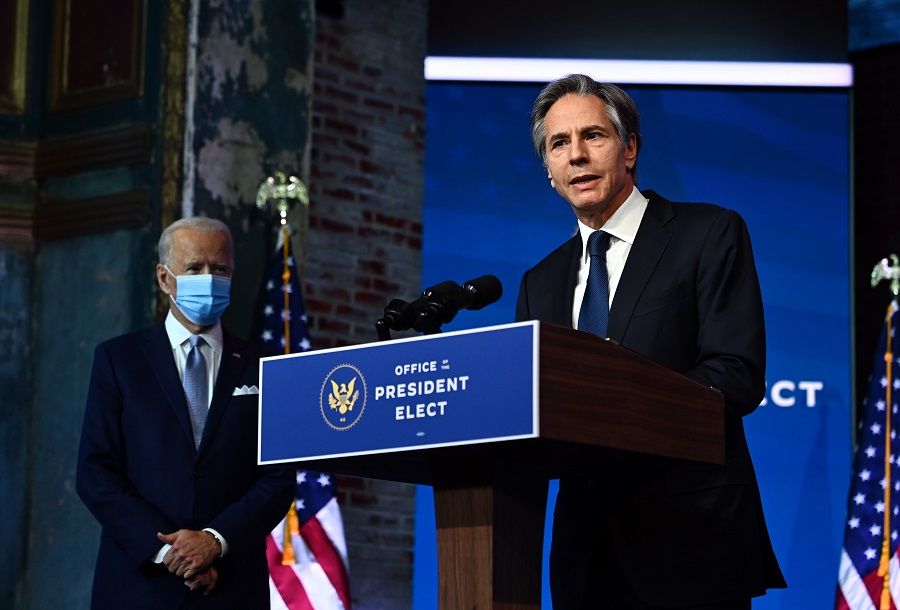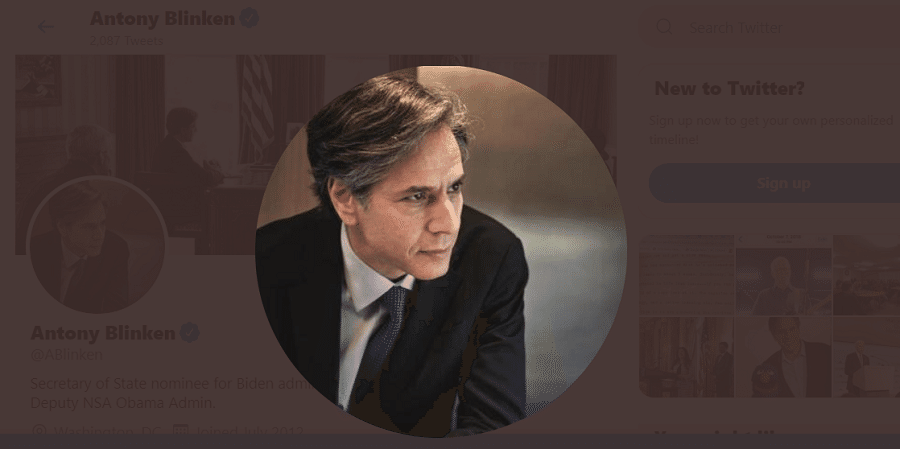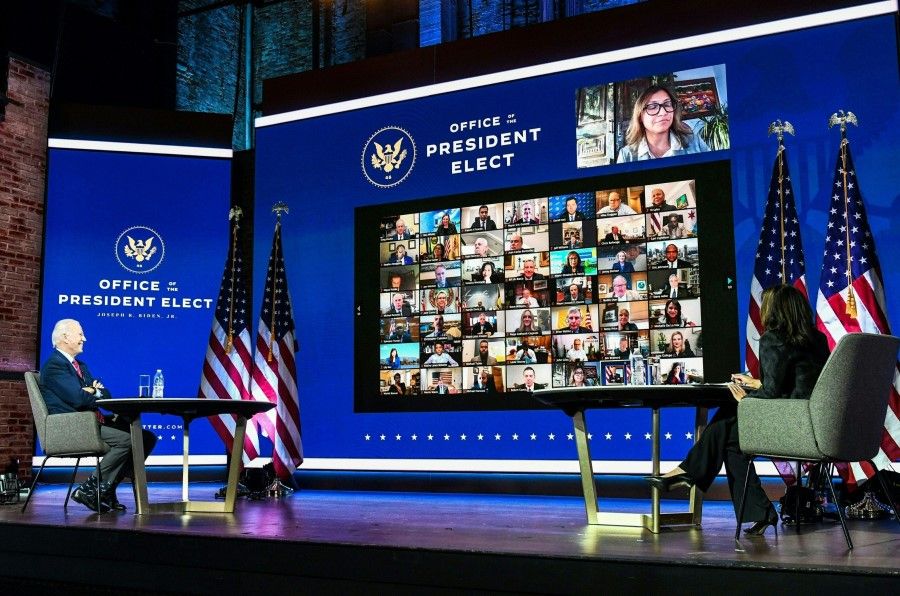The Chinese are hopeful about Antony Blinken's appointment as the US's top diplomat

The identity of the incoming Biden administration official who will be crossing swords with China in geopolitics and diplomacy has been made known. Just as the American media predicted, Antony Blinken - a veteran diplomat in the Obama administration and Biden's longtime adviser - will be the next US secretary of state.
Chinese opinion makers are concerned about how this Democrat, who is pro-establishment and an old-school diplomat, will handle faltering China-US relations.
58-year-old Blinken was special assistant to the president and senior director for speechwriting during the Clinton administration and had served as Clinton's chief foreign policy speechwriter. When Republican former President George W. Bush was in power, Blinken was Democratic staff director for the Senate Foreign Relations Committee when Biden was chairman.
Blinken has worked alongside Biden for nearly two decades and is one of Biden's most trusted aides. This longtime foreign policy official will no doubt have a great influence on Biden's foreign policy decisions.

During Obama's eight years in office, Blinken had served in roles such as then Vice President Biden's national security adviser, assistant to the president and principal deputy national security adviser, and deputy secretary of state. Blinken has worked alongside Biden for nearly two decades and is one of Biden's most trusted aides. This longtime foreign policy official will no doubt have a great influence on Biden's foreign policy decisions.
Chinese officials and state media have yet to respond to this appointment. But in response to earlier speculations that Blinken will be given the role, Chinese foreign ministry spokesperson Zhao Lijian said "we don't comment on the US internal affairs". However, some Chinese mainstream media have been taking a great interest in Blinken; Chinese magazine China Newsweek (《中国新闻周刊》) even dug up a 2015 interview they did with him.
Based on his record, Blinken is keen to engage China
In 2015, not long after Blinken became deputy secretary of state in the Obama administration, he stopped over in China for two days when he was visiting East Asia. On a train ride from Beijing to Tianjin, he did an interview with reporters from China Newsweek who had followed him on his trip. According to the interview, Blinken mentioned at that time that China and the US could work together to tackle climate change, and the two sides should work together pragmatically and effectively to address common challenges. Only then could both countries better avoid falling into inevitable confrontation. It was also reported that he was circumspect in his speech and behaviour, and was polite and well-mannered when communicating with others.
While it is not openly expressed, Chinese public opinion is still hopeful and positive about Blinken's appointment as the US's top diplomat.
When China Newsweek republished this interview yesterday, they drew attention to an intriguing detail: Blinken's current profile photo on his personal social media account is the photo that China Newsweek had taken of him in February 2015 when he was at the resting area of the train.

Compared with current US Secretary of State Mike Pompeo who has been harshly criticised by Chinese state media as having "exceeded the bottom line of being human" and is "the common enemy of mankind", Blinken has clearly left a better impression on Chinese opinion makers. While it is not openly expressed, Chinese public opinion is still hopeful and positive about Blinken's appointment as the US's top diplomat.
However, the current state of China-US relations versus the state it was in during the Obama administration is vastly different. With Blinken's imminent return to the White House, will he also "return" to his former diplomatic stance towards China?
New broom sweeps clean?
From the essays that Blinken has written in the past few years and his comments over the past six months, it is widely believed that when Blinken becomes secretary of state, he will focus on reshaping relationships between the US and other countries, returning to traditional multilateralism, and rebuilding the US's international leadership capabilities. This will be a key foothold for the US in dealing with China.
He will focus more on strengthening US relations with India and the Indo-Pacific, and deepening exchanges with Africa, as well as Europe, its "first choice" partner in overcoming challenges.
At a forum at the Hudson Institute in July this year, Blinken said: "Simply put, the big problems that we face as a country and as a planet, whether it's climate change, whether it's a pandemic, whether it's the spread of bad weapons - to state the obvious, none of these have unilateral solutions. Even a country as powerful as the United States can't handle them alone."
He also said that working with other countries could help the US address another top diplomatic challenge - advancing trade, technology, investment, and human rights issues through multilateral cooperation while competing with China.
US public opinion makers thus believe that Blinken's policy towards China will be to join forces with its allies to put pressure on China. He will focus more on strengthening US relations with India and the Indo-Pacific, and deepening exchanges with Africa, as well as Europe, its "first choice" partner in overcoming challenges.

With China-US relations as frosty as they are now, no one expects that Blinken will immediately turn bilateral relations around. His working style as a US pro-establishment official coupled with his rich experience in foreign policy may help the US engineer a return from the Trump-era "America First" policy back to alliance diplomacy. This change could exert greater pressure on China in terms of trade regulations, democracy, and human rights, which would make Beijing more uncomfortable.
For Beijing, at least Blinken will not cross China's bottom line. And even if China ends up disappointed with Blinken, it will probably not be as bad as with Pompeo.
However, it is worth noting that with hawkish officials in the Trump administration such as Mike Pompeo strongly advocating decoupling with China, China and the US have not worked together on any international affairs during the latter part of the Trump administration, especially after the global spread of the coronavirus.
Apart from a verbal war at a distance, there has been zero interaction, and in fact both have come close to sparking a military incident. By contrast, Blinken is not of the decoupling camp - he sees China as the biggest "challenge" and "competitor" for the US, but advocates China-US cooperation in climate change, the pandemic, and military regulation.
Such a stand may not be constructive for nearly-broken China-US relations, but at least it will not accelerate the disintegration. As Blinken previously said on a visit to China, cooperation brings hope of preventing both sides from descending into confrontation. For Beijing, at least Blinken will not cross China's bottom line. And even if China ends up disappointed with Blinken, it will probably not be as bad as with Pompeo.
